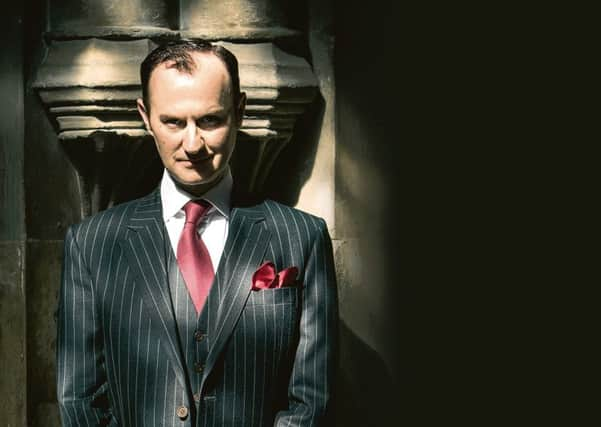Theatre interview: Mark Gatiss


I love actors. I take the Alan Bennett view of those who work in the other ‘oldest’ profession. The Leeds-born playwright calls actors ‘brave creatures’.
Bravery, it does have to be said however, doesn’t necessarily always make for a fascinating interviewee.
Advertisement
Hide AdAdvertisement
Hide AdNot so actor Mark Gatiss who is this week starring in a touring revival of the ground-breaking play The Boys in the Band at the West Yorkshire Playhouse. He has plenty to say. Mind you, he does also add producer, director and writer to his CV. The actor, who trained at Bretton Hall near Wakefield and is one of the four creative minds behind what he believes is the horribly prescient The League of Gentlemen, is a man of a sickeningly long list of talents.
Which entry on his CV best describes Gatiss? He claims it’s not one that appears on the official version. “Sexual athlete,” he says, displaying the kind of wit that has made him as in demand for his writing of scripts as he is for his arch delivery of them on screen and stage. Gatiss grew up in Durham as a bookish child, a cinephile who used to love reading plays and screenplays. “I always wanted to be an actor, but I was encouraged to also write from a very early age. It’s something I have always done in conjunction with acting, I consider it a really useful second string because I don’t have to sit around waiting for the work to arrive.”
Gatiss had his first taste of success in the mid-90s when he, along with Reece Shearsmith, Steve Pemberton and Jeremy Dyson, all Bretton Hall alumni, came up with the very odd BBC comedy The League of Gentlemen. Based on the kind of towns the four creators understood from their Northern upbringing, it tells of the characters of Royston Vasey, very much a ‘local town for local people’. Satirising a middle England attitude of a fear of foreigners and a distrust of anything that isn’t local, one wonders if it’s ripe for revival. The last series of the twisted comedy was on TV in 2002.
Gatiss says: “We all really want to do something together again set in Royston Vasey. It’s been well over a decade and we’re in the early stages of planning something. It will probably be a one-off, but it feels very much like the right time. If Michael Gove isn’t local than I don’t know who is.” Gatiss thinks that if we wanted to see where the country was heading in 2016, all we had to do was look to the work he and the other Gentlemen creators were making over a decade ago. It does now seem frighteningly prescient.
Advertisement
Hide AdAdvertisement
Hide AdHe says: “‘There’s nothing for you here’ seems to be the motto of the country in 2016.” See? Gatiss has more to say than most. He isn’t saying much about Sherlock, the TV show which sees him write, executive produce and act as Benedict Cumberbatch’s brother Moriarty. “We have to pinch ourselves,” says Matiss of the success of the TV show. “Me and Steven (Moffat) came up with the idea on a train of updating Sherlock. In the original novels Dr Watson was invalided out of the army while fighting in Afghanistan and as soon as we discussed that, we knew it could be updated for an audience today. We couldn’t have had for a minute any idea of the global impact.” Even though a new series of Sherlock, we now know, will be coming to the BBC in January, Gatiss is keeping busy with a tour of the play The Boys in the Band.
The play originally opened in 1968 off-Broadway and this is the first British revival in decades. Gatiss, who is married to fellow cast member Ian Hallard, believes it’s a story ripe for revival.
We speak the week after a bill that would have wiped clean the criminal records of thousands of gay men, prosecuted when homosexuality was criminalised, was talked out of parliament by MP Sam Gyimah. Gaytiss says: “Just because we have equal age of consent and gay marriage, doesn’t mean we have reached equality.
“We still live in a time where the prejudice of one person can sink an important and well-intentioned piece of legislation.”
West Yorkshire Playhouse, to November 19. www.wyp.org.uk